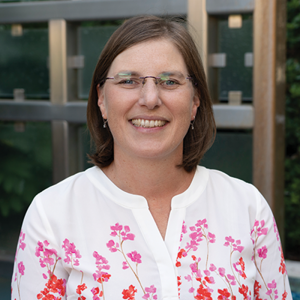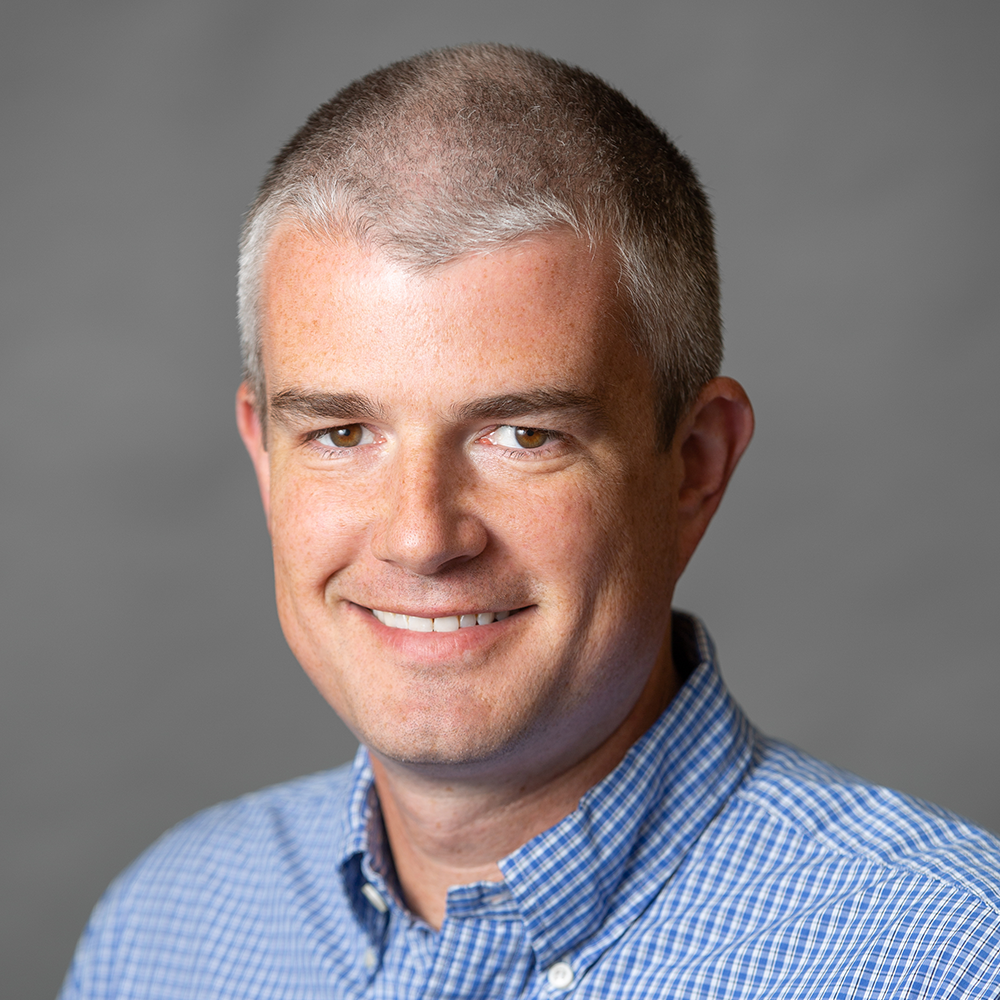
Arriving early to the fight against cancer
In Episode 5, we learned about cancer as a disease class and how the Cooper lab works to improve cancer treatment options. But what about diagnosing and preventing cancer? In this bonus episode, you’ll hear about cancer prevention and risk screening, as well as a program that is trying to bring cancer risk testing to everyone.
To learn more about the Information is Power initiative, visit the website here.
To sign up for the 2022 Tie the Ribbons luncheon, visit the website here.

Season 3 of Tiny Expeditions is made possible through the support of our sponsors:

Sarah Sharman 00:00
Season Three of Tiny Expeditions is made possible through the support of our sponsor EBSCO Information Services, the leading provider of online research content search technologies and workflow tools, serving public libraries, schools, academic institutions, corporations, and medical institutions around the world. Proudly delivering information access for researchers at all levels online and ebsco.com. That’s EBSCO.com.
Chris Powell 00:31
Welcome to this bonus special edition episode of Tiny Expeditions. My name is Chris Powell. I’ll be your storytelling guide for today.
Sarah Sharman 00:40
And I’m Dr. Sarah Sharman, here to help you understand the science. We had such an amazing conversation with Dr. Sara Cooper during episode five. We learned about cancer as a disease class and focused a lot on the Cooper lab’s goal to improve cancer treatment. There are a few topics that we just didn’t have time to cover, though. So as promised, here’s the long-awaited cancer bonus episode.
Chris Powell 01:02
When talking of cancer, we most often go to treatments. And in the scientific community, one of the things you have to do is to be able to look at something from many different perspectives. So, we thought, well, what if there’s another way to talk about cancer, maybe not through therapeutics, but maybe through diagnostics.
Sara Cooper 01:19
The treatment of cancer is sort of the thing that jumps out in everybody’s mind because once you have cancer, that’s what everybody’s talking about. But the goal is really to diagnose cancer, or even prevent it if we can, so you know, eliminating or lowering risk factors. And I’m not going to tell you anything that everybody’s doctor hasn’t already said, which is diet and exercise, and all that. Keeping a healthy lifestyle is probably one of the biggest factors in reducing your cancer risk. So, I won’t go down that or get on that soapbox, because I could probably have someone tell me those things, too. But, you know, the other thing that we want to know more about is how our genetics can impact our risk for disease.
Sarah Sharman 02:08
Advances in genetic technology made the discovery of genetic risk factors for cancer possible over the past few decades. Individuals with a strong family history of certain cancers can now receive genetic testing to determine if they are at an increased risk of one-day developing cancer. The first risk genes BRCA1 and BRCA2 were identified by Dr. Mary Claire King and collaborators in the early 1990s. Certain changes in these genes increase a person’s risk of breast and ovarian cancer. In 1996, BRCA1/2 mutation screening became the first genetic test for cancer risk to become available as a clinical service.
Chris Powell 02:49
Each year, the HudsonAlpha Institute hosts the Tie the Ribbons luncheon. This is a fundraising event for cancer research that happens here at the Institute. In the fall of 2014, Dr. Mary Claire King came as the guest speaker for the Tie the Ribbons luncheon. The luncheon that year was held at the US Space and Rocket Center in Huntsville, and she stood underneath the Saturn five rocket and gave an impassioned plea to the HudsonAlpha researchers and faculty to take their expertise and make genetic testing available to all persons. Those in attendance took this challenge to heart and started the Information is Power initiative to bring genetic testing to the Huntsville area. Since that year, the program continues to grow.
Sara Cooper 03:33
So, when Information is Power was developed, it was really developed based on the idea that if we know this information, and we could reasonably inexpensively identify those changes in DNA that are important for risk. You know, what if we could do that for more people? What if we could do that for everybody who wanted it? Because historically, those tests have been very expensive. So, the only people that would get those tests would be typically if they had a very strong family history. I’m talking multiple family members that are, you know, mother, sister, daughter, and getting cancer in their pre-40s and 50s. So very early. That’s because those tests were so expensive, thousands of dollars. So, insurance would cover it for those people under those very specific circumstances. But now, with sequencing technologies becoming so much less expensive, now we’re talking about hundreds of dollars for a test, could we offer it to more people, either with broader sort of requirements or even to just anybody who wanted to get that information?
Sara Cooper 04:49
So, Information is Power was built on that philosophy of what if we offered this test to anybody who wanted it, regardless of what their family history is? And I think it’s been a really successful program. It’s been used by over 5000 individuals mostly in North Alabama. And it’s easy to do. You can just sign up online. And we have been really lucky to have great support in our community for sharing that information with our community and offering that program. But I’ve also been particularly excited about it the last couple of years because we’ve really been working to think about how this technology obviously has the potential to benefit everybody. But it hasn’t been easy to make sure that it is accessible to everybody.
Sarah Sharman 05:40
On episode 4, Drs. Ezell and May explained that there are many barriers to universal access to genetic informed healthcare, like race, gender, socioeconomic status, medical distrust, and lack of reliable information. It turns out, these are all barriers that apply to Information as Power as well.
Sara Cooper 05:58
We’ve been fortunate to be funded to offer this program in the Black Belt in Alabama and have been really working hard to get that off the ground. I’m so excited about some of our early successes. So, we’ve been working with clinicians down in Montgomery to offer testing to their patients. And now we’re in the process of developing a relationship with a set of medical clinics down in the Selma area that will be expanding that to other parts of the Black Belt and Alabama, which are areas where individuals in that area are notoriously underserved. They typically do not have very good access to health care in general, much less genetic information. And we’re trying really hard to work to not only make the testing accessible but also provide the resources that patients are going to need to understand the information that they’re receiving, to make sure that they have the support of other health care professionals that they might need access to, or particularly if they have a positive test. And so, I’ve been really excited about that work that we’ve been doing. It’s hard work, but it’s really important work. And it has the potential to start to scratch the surface of these abundant health disparities that exists not only in our state but throughout the country and really around the world. It’s not an easy problem to solve. And I by no means think that we have all the answers, but I’m excited that we can start to be part of the solution.
Chris Powell 07:32
Programs like Information is Power are needed to help bring the power of genomics to all people. Barriers have to be broken through public and private partnerships and community engagement. While we have talked about making this widely available, don’t forget that you are part of that population we’re talking about.
Sarah Sharman 07:50
If you’re interested in participating in the Information is Power program, you can find the website in our show notes for this episode. Another way to make an impact in the fight to make genetic testing more equitable is to donate to cancer research programs. If you’re local to the Huntsville area, consider attending the Tie the Ribbons event this fall. Join us on November 9 to hear about hope, strength, and the work being done using genomics in cancer research. You can register for the Tie the Ribbons event at hudsonalpha.org/TTR.
Chris Powell 08:21
And if you find yourself at this event, make sure to find Sarah or myself, we would love the chance to meet and to talk with you. And with that we’re officially finished with all of Season Three. We’ve already started pre-production for Season Four, where we will be talking about the business of biotech following some biotech startups to learn about the scientific barriers that are being pushed, commercialization processes and entrepreneurial challenges. We hope you’ll join us for that season.
Sarah Sharman 08:49
Tiny Expeditions is a podcast about genetics, DNA, and inheritance from the HudsonAlpha Institute for Biotechnology. We’re a nonprofit research institution in Huntsville, Alabama.
Chris Powell 08:59
We’ve got a campus full of scientists doing public research alongside companies developing products and services, all with one aim to translate genomic discoveries into real-world applications that make for a healthier, more sustainable world. That’s everything from cancer research to agriculture for changing climate.
Sarah Sharman 09:17
If you find this podcast interesting, please rate, review, like, and subscribe on the podcast app of your choice. And tell someone that you listened to this interesting little story about genetics. Knowledge is better when you share it.
Chris Powell 09:28
Thanks again to our sponsor, EBSCO Information Services, and thanks to you, our listeners, for joining us.
[wprpw_display_layout id=8]






